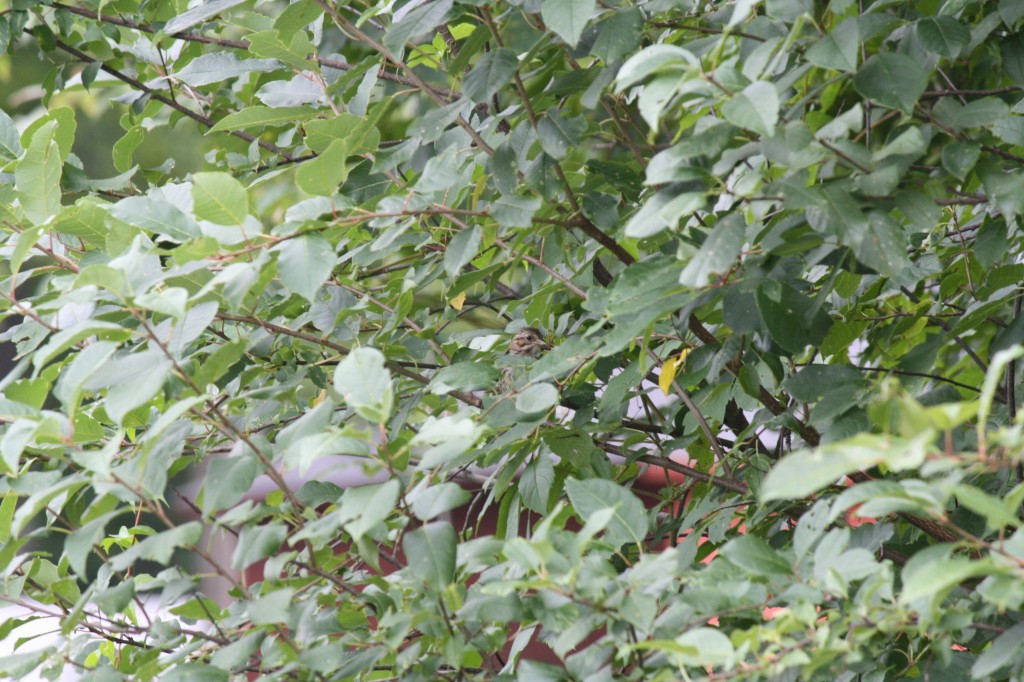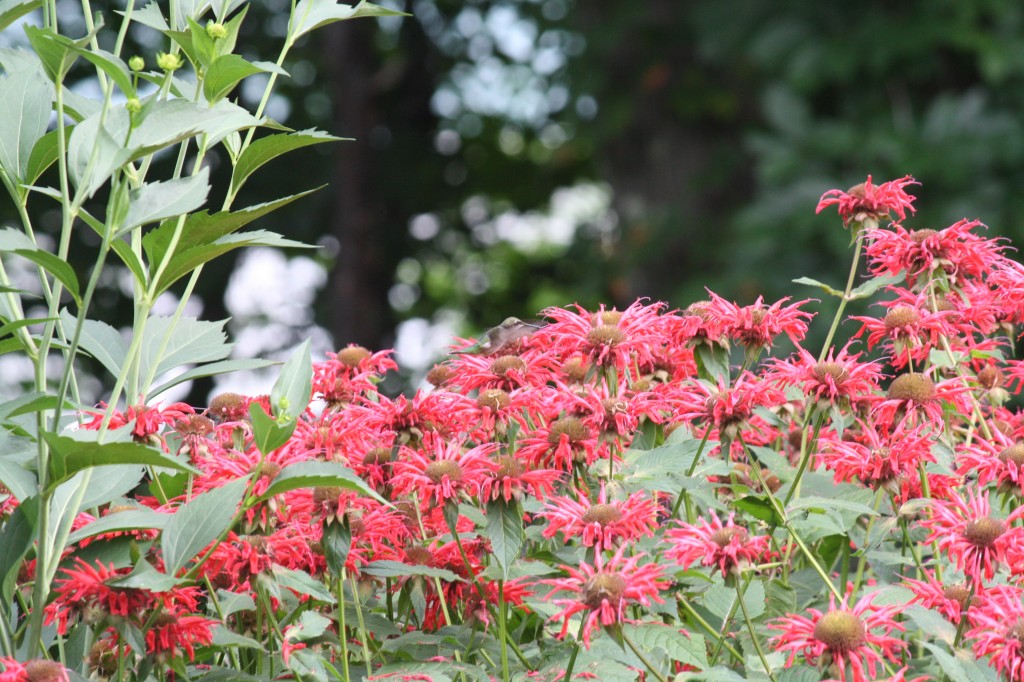I will be the first to admit that I am not an ornithologist.

Song Sparrow by the dumpster out back- is this species a new arrival, an old inhabitant, or in between?
I took an ornithology class at Antioch largely because I had no real knowledge of birds at all, apart from knowing that baby songbirds are often loud and persistent, especially the mockingbirds. Since my goal is to work in environmental conservation and many people get involved in these efforts from an interest in birds, it seemed like a good career decision to broaden my perspective on these animals. My attempts to describe birds I had seen to my professor were legendary for their lack of correct detail. (When I looked at the bird’s tail, he would ask about it’s head- if I looked at it’s head, he wanted to know about the wings- I just couldn’t win.) But I worked very hard to learn bird calls and bird shapes and the roles birds play in diverse ecosystems. The problem is that, even when you can identify the 100 most common breeding birds of NH by sight and song, there are still a lot of birds that you don’t know. And, even if you can identify a bird, someone with my level of knowledge doesn’t know if that sighting is important or not. (I was driving through Manchester one winter evening and saw at least 100 crows all flying together in the same direction- I though this was amazing; when I related this to an ornithologist friend, he said, “Yeah, they do that” in the most nonchalant manner imaginable.) I also don’t know whether the bird community outside my door is stable or changing or what- maybe something is rotten in the state of northeast birds.
One aspect of bird life that I am slightly familiar with is migration- during the summer of 2011 in Mongolia, I was there to watch birds stop in the nature reserve on their way north and then again when they started the trip south. I also know that some migrating birds are simply phenomenal in the distances they cover- I hit my limit for continuous flight after 14 hours while going from Seoul to Atlanta, I can’t imagine keeping it up for days. I have heard that an area of concern for ornithologists is migrating songbirds- certain populations are decreasing and there are lots of ideas and questions about what factors are contributing to this decline. One of the obstacles in research on migratory species is that they depend on many areas and many ecosystems to survive, so there are huge numbers of variables to investigate.

Ruby-Throated Hummingbird, one of the many migrants in NH – do you have any idea how difficult it is to get a good hummingbird picture? (Especially when there’s a dog tugging on the leash in the hand holding the camera- maybe I need a new research partner…)
I know that concerns about migrating songbirds are not confined to one section of the world or US, even if one species might be, so this is an issue that impacts a wide variety of people and that could benefit from the combined effort of those people. Fortunately, there are already organizations out there that are using information from people across the US to track population trends and encourage direct involvement in bird conservation. My goal this month is to look into how migrating songbird populations have changed since record-keeping began and which factors appear to have influenced those changes the most. I’d also like to look at the ways in which whole communities have come together to collect data and support those species that are in decline. Birds represent an interesting conservation problem because, for the most part, they are so mobile- I don’t know of any mice or spiders or frogs that range so far on a regular basis. This means that there are many opportunities for obstacles to arise, but also many opportunities for everyone to directly contribute to conservation.
Maybe you already look at the bird feeders in your yard regularly and can provide an overview of how what you see has changed, or not, over the years; maybe you haven’t been paying attention to song birds lately- either way, the next month will (hopefully) give you a crash course in what is happening out there and why.
